5. Quentin Tarantino
In 1992 it would seem odd to think that Quentin Tarantino would go on to become one of Ebert’s most championed filmmakers, especially given the rather lacklustre response from Ebert to his otherwise highly acclaimed thriller Reservoir Dogs.
Ebert conversely awarded the film just two and a half stars out of four, praising the dialogue, style and performances but ultimately felt the film lacked depth and humanity, that none of the characters evolved beyond their initial archetype.
Ebert was wise enough to spot potential however, and noted at the end of his review that “Now we know Quentin Tarantino can make a movie like Reservoir Dogs, we know he can make a better one”.
Tarantino did indeed deliver on that promise as his next film was named by Ebert was the second best and most influential film of the entire decade, Pulp Fiction. He praised the non linear storyline, the nature of Tarantino’s writing from the wonderful stylistics to the “seemingly irreverent dialogue” that “builds characters, plotlines and the foundation of the film itself”.
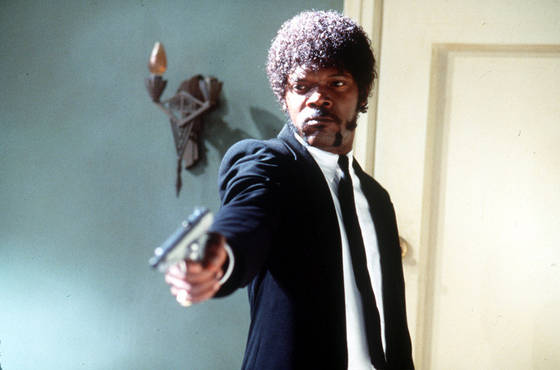
By the time he added Pulp Fiction to his Great Movies collection Ebert had also awarded another four stars to Tarantino’s next film, Jackie Brown. While some see it as a step down Ebert found it to be “perfectly written, timed and played”. He marvelled at Tarantino’s ability to create such empathetic characters, ones that he “wanted to see live, talk, deceive and scheme for hours upon hours.”
The same high rating would continue for Tarantino’s most widely known property, the Kill Bill saga. Ebert awarded both Volume 1 and Volume 2 a full four stars, praising Tarantino’s direction in the first instalment as “brilliantly in command of his technique” and while he admitted the substance was somewhat lacking, the style was enough to compensate for it.
However if Ebert was looking for substance then Volume 2 delivered it for him succeeding in “deepening my appreciation of the saga as a whole”. Ebert would go on to name the collection as one of the best films of the decade just as he had done with Pup Fiction beforehand.
By the time Ingloruous Basterds appeared in 2009 Eberg had already deemed Tarantino to be “the most brilliantly oddball director of his generation” and he reaffirmed that statement when he awarded another four stars to the directors “audacious war movie”.
The same could be said for his contemplation on the director’s 2012 western Django Unchained. Though Ebert never wrote an official review due to ill health, he felt the movie warranted an in depth blog post during which he praised it as “brilliant entertainment”.
4. Steven Spielberg
Though it’s debatable whether a director as popular as Steven Spielberg ever needed a critics endorsement to secure their place as an auteur, Spielberg was a frequent favourite of Ebert, which was particularly obvious when the critic defended Spielberg against those who felt he was merely another commercially interested filmmaker.
From his legendary blockbuster break out back in 1975, Jaws, which Ebert awarded four stars and compared to the thrillers of Hitchcock or Freidkin, while calling it “masterfully suspenseful” and admired its use of strong characters with whom the audience builds a connection with to establish that suspense.
What followed was decade after decade of praise directed towards Spielberg, (with a few notable exceptions in the form of 1941, Always and Hook) from his 1977 passion project Close Encounters of the Third Kind which also earned a four star review and a place on Ebert’s annual best of the year list. He called it an “astonishing achievement, capturing the feeling of awe and wonder we have when considering the likelihood of life beyond the Earth”.
Ebert gave similar praise to Spielberg’s action extravaganza Raiders of the Lost Ark, stating that the film was “an out of body experience, a movie of glorious imagination and break neck speed that grabs you in the first shot, hurtles you through a series of incredible adventures, and deposits you back in reality two hours later — breathless, dizzy, wrung-out, and with a silly grin on your face”.
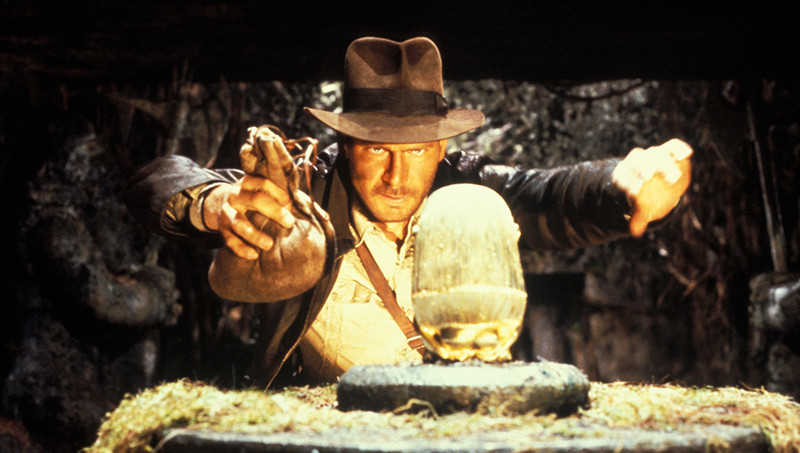
Raiders of the Lost Ark was one of two Spielberg films to earn a place among Ebert’s list of the top ten films of the 1980s, along with E.T: The Extra-terrestrial. It received the full four stars back in 1982 and would go on to be included in Ebert’s Great Movie collection as well. Not only that, but when Ebert himself was criticised for labelling Spielberg as a great director, his response was “I do not believe the man who made E.T could be labelled as anything other than great”.
When Spielberg switched to more dramatic works Ebert remained just as supporting and continued to give praise to his films. The Colour Purple and Schindler’s List both received the full four star rating, were named the best film of the year they came out and received a Great Movie of their own.
One that did not receive the same honour was Saving Private Ryan, but that did not stop Ebert once again awarding Spielberg four stars and praising the director’s war epic as “astonishingly powerful”.
This trend continued into the 2000s with Minority Report also gaining the coveted four star review and being named the best film of 2002, as well as a place among Ebert’s favourite films of the decade. The same can be said for Munich, A.I: Artificial Intelligence (which even earned another Great Movie ) right up to the last Spielberg film Ebert reviewed, Lincoln, with yet another four star review and spot on the annual top ten list.
3. Terrance Malick
By this point in his career Terrance Malick almost carries a mythical quality to him, as if his movies can transcend one simple interpretation and always represent far more. Ebert encountered Malick at the same point the rest of the world did with his 1973 directorial debut Badlands.
At the time he awarded it four stars and was impressed by its treatment of its own characters “They are strange people, as were their real-life models….They were just two dumb kids who got into a thing and didn’t have the sense to stop”.
Ebert was also impressed by the visual aesthetic of Badlands, but he was even more impressed by the cinematography of Malick’s next film Days of Heaven, which he called “one of the most beautiful films ever made” in another four star review. Unlike Malick’s other work Days of Heaven was not widely acclaimed and left many critics divided. But Ebert stood by his high praise and eventually added the film to his Great Movies collection along with Badlands.
After a long hiatus Malick returned with his third film, The Thin Red Line and despite being singled out by many as Malick’s greatest film Ebert was less enthusiastic, awarding it three stars.
For the first time he felt that Malick’s style was not synchronised with the story he was trying to tell, stating that there was a sense of disconnect by the fact that “The actors in The Thin Red Line are making one movie, and the director is making another.”
However Malick was once again receiving the maximum amount of praise with his 2005 film The New World. Evert admired the way Malick went about “stripping all the fancy and lore from the story of Pochahintas and imagines how new and strange these people must have seemed to one another”.
He praised Malick as “a visionary” who handled his subject matter with “with almost trembling tact” and praised his ability to focus more on emotions than anything else, bringing forth the feelings at the centre of the film.
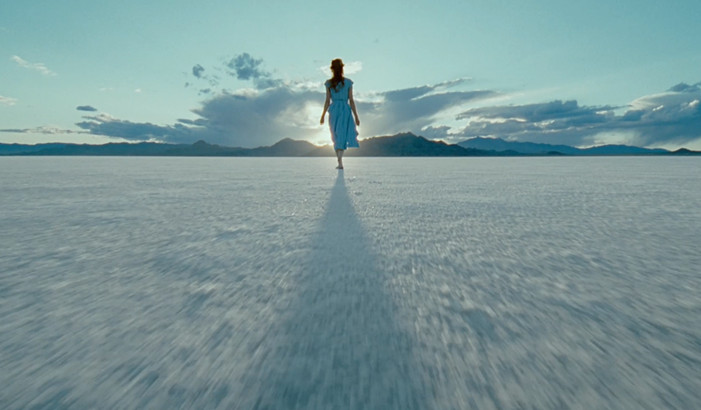
In 2011 Malick returned with his experimental drama, The Tree of Life. Upon its release it proved to be a divisive project, but Ebert awarded it yet another four stars in his review. One of the opening lines of that review compared the films boldness of vision to Kubrick’s 2001, and then went on to praise the director’s “fierce evocation of human feeling”.
Not only did Ebert include the film on his annual best of the year list but he went a step further, as the following year the Sight and Sound critics plot required the world’s leading film critics and scholars to select their personal picks for the ten greatest films ever made. Ebert’s choice was the recent but deeply powerful film by Malick, The Tree of Life, a movie he selected for “it’s breath taking scope, but also its humane centre”.
Malick’s next film was not only the last film from the director that Ebert would review, but it was also the last film the famed critic would ever review. In one of his most poignant reviews Ebert addresses those who left the film unsatisfied, and felt that the film. He wrote that “I understand that, and I think Terrence Malick does, too. But here he has attempted to reach more deeply than that: to reach beneath the surface, and find the soul in need”. A fitting way for Ebert to leave his loyal readers and depart.
2. Werner Herzog
From his first review of a Herzog film, the German director was already cemented as one of Ebert’s favourite directors of all time, due in no small part to the fact that he would place Aguirre, the Wrath of God on his Sight and Sound selection of the ten greatest movies ever made.
In his original review he wrote that “Herzog’s other films sometimes speak unclearly; this one speaks in blunt, unforgiving despair”, he regarded it as a horrifying and obsessive film, one that was made all the more disturbing due to being based on fact. Ebert praised the “bizarre and affecting” images of the film, the gradual onset of madness and its “frightening intensity”.
Aguirre was one of the first films to be added to Ebert’s Great Movies collection and would become one of many from Herzog that found a place there. Another was Herzog’s 1974 picture The Enigma of Kaspar Hauser, and wrote that “In Herzog the line between fact and fiction is a shifting one. He cares not for accuracy but for effect, for a transcendent ecstasy”, proving that the directors films had a distinct and profound effect on the critic to draw such praise from him.
The same could be said for Herzog’s next film, which received a further full stars and became the eventual recipient of another Great Movies Essay, in which Ebert wrote that “From it I get a feeling that evokes my gloom as I see a world sinking into self-destruction”. On each occasion Herzog’s films created a haunting and impactful effect on Ebert that clearly stayed with the critic long after the credits had finished rolling.
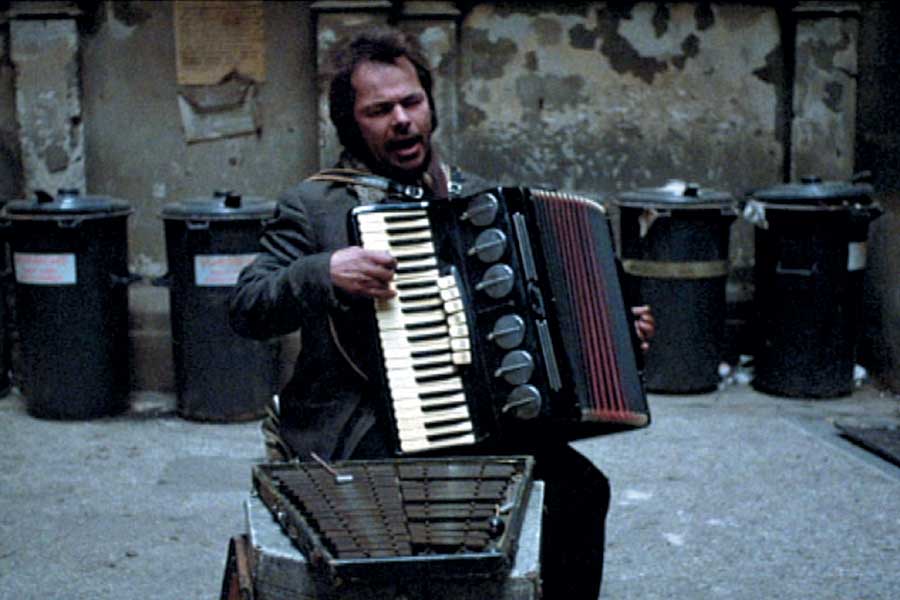
Herzog’s next two films were to receive the exact same honour. “One of the oddest films ever made” was what Ebert wrote about 1977’s Stroszek, but it was clear Ebert had not only become accustomed to Herzog’s unique filmmaking sensibilities but it was one of the aspects he most admired about the director, “Who else but Werner Herzog would make a film about a retarded ex-prisoner, a little old man and a prostitute, who leave Germany to begin a new life in a house trailer in Wisconsin?”
Ebert expressed a different kind of admiration for Herzog’s next film, one that adapted the story of Nosferatu the Vampyre, calling it “rich, heavy, deep”, he admired its beauty just as much as its ability to invoke terror and expressed that it was the “most evocative series of images centred around a vampire that I have seen since F.W Murnau’s Nosferatu”. He concluded that the film could not be confined to a single genre, that it was “about dread itself” and was undefinable.
During the production of Herzog’s next film, when Ebert saw set images he feared the director had embarked upon a suicide mission. Before the film was even complete Ebert contemplated that if the project was completed and Herzog was able to survive the ordeal “one of the greatest accomplishments in the history of filmmaking”.
When he saw the film itself, despite acknowledging some of its flaws, Ebert regarded it as “a movie in the great tradition of grandiose cinematic visions”. Despite “not quite reaching perfection” Ebert still awarded the film four stars, “as a document of a quest and a dream, and as the record of man’s audacity and foolish, visionary heroism, there has never been another movie like it”.
At the turn of the century Herzog made the move to crafting more documentary features than dramatic ones. But Ebert admired his ability to make his non-fiction works as riveting as his staged ones, giving positive reviews to My Best Friend, Invincible, Grizzly Man and Encounters at the End of the World.
But when he made a return to narrative features, Ebert was still just as enthusiastic over Herzog’s work, awarding three and a half stars to Rescue Dawn in 2007 and another four star rating to the director’s divisive crime drama, Bad Lieutenant: Port of Call – New Orleans.
1. Martin Scorsese
In 1967 Roger Ebert was a relatively inexperienced film critic, but having just seen an early feature at the Chicago International Film Festival of a recent independent movie named I Call First, he chose to award it three and a half stars out of four.
Two years later when the film had finally been given a wide release and the title had been changed to Who’s That Knocking On My Door Ebert admitted he may have been over enthusiastic but was still positive about the film, and awarded it the same rating.
He also focussed on its director, for whom the feature had been a debut and said that “It is possible that with more experience and maturity Scorsese will direct more polished, finished films.” That was, to say the least, an inspired piece of insight.
Despite a relatively slow start with his next feature, a low budget exploitation movie called Boxcar Bertha, Martin Scorsese would go on to become one of Ebert’s most beloved and cherished filmmakers of all time, one that he had endorsed right at the start of his career and continued to do so right up to the critics death in 2013.
In 1973 Ebert awarded the director his first four star rating when he released the independent crime drama, Mean Streets, writing that “In countless ways, right down to the detail of modern TV crime shows, Mean Streets is one of the source points of modern movies.”
Ebert was similarly enthusiastic about Scorsese’s next feature titled Alice Doesn’t Live Here Anymore. He cited it as “one of the most perceptive, funny, occasionally painful portraits of an American woman I’ve seen”. But this proved to be just a small dose of the filmmaker’s full potential as just a year later he released the defining masterpiece Taxi Driver.
A film that Ebert showed particular insight and poignancy towards when reviewing it, commenting on the films deeper meaning and themes, what it said about the human condition and the way it handled its own tortured characters.
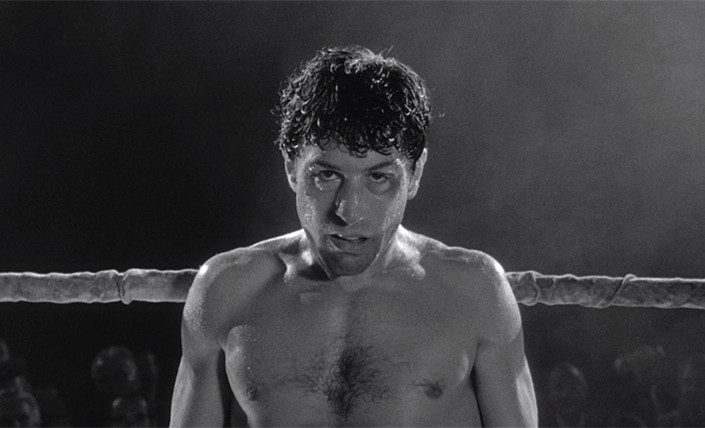
Scorsese’s next masterpiece came in 1980, another collaboration with Robert De Niro, the boxing biopic Raging Bull. Ebert called it “the culmination of Scorsese’s earlier promise” and an instant classic. Both he and his At the Movies co-host Gene Siskel deemed it to be the greatest movie of the decade, and when composing his list of the ten greatest movies ever made Ebert was sure to include Raging Bull.
Ebert gave similarly glowing reviews to other Scorsese features of the 1980s including After Hours and The Last Temptation of Christ. They both ended up on Ebert’s annual list as well as a place within the Great Movies Collection. By this point Ebert considered Scorsese to be a staple of modern American filmmaking and that status would only increase throughout the next decade.
In 1990 Scorsese released his widely acclaimed crime drama, Goodfellas. Ebert names it the best film of that year and among the top three of the decade. He wrote that “No finer film has ever been made about organized crime – not even The Godfather.” Ebert would award another four star rating to Scorsese’s 1993 period piece, The Age of Innocence, an adaptation of the novel of the same name by Edith Wharton.
Ebert noted how the film was not as far a cry away from Scorsese’s other work as some critics might have thought, “”The story told here is brutal and bloody, the story of a man’s passion crushed, his heart defeated. Yet it is also much more, and the last scene of the film, which pulls everything together, is almost unbearably poignant.”
After two more four star reviews that were awarded to Casino and Bringing Out the Dead, as well as a string of other positive reviews to Scorsese’s various films of the 1990s Ebert continued to praise the director into the next decade. His highly admirable review of The Departed, the film that would finally give Scorsese his long awaited Best Director Oscar, stated that “This movie is like an examination of conscience and identity”.
As well as awarding a further four stars to the director’s acclaimed documentary No Direction Home, in 2008 Ebert would release a book simply titled, Scorsese. It featured reviews and revisions of the acclaimed directors work as well as a number of interviews with him. As the only director to have an entire book by Ebert, devoted solely to his career it marks him as one of Ebert’s most championed director.
Author Bio: Joshua Price considers himself more of a fan that happens to write near insane ramblings on movies and directors like Scorsese, Spielberg, Bergman, Kubrick and Lumet rather than an actual critic and other insane ramblings can be found criticalfilmsuk.blogspot.co.uk.